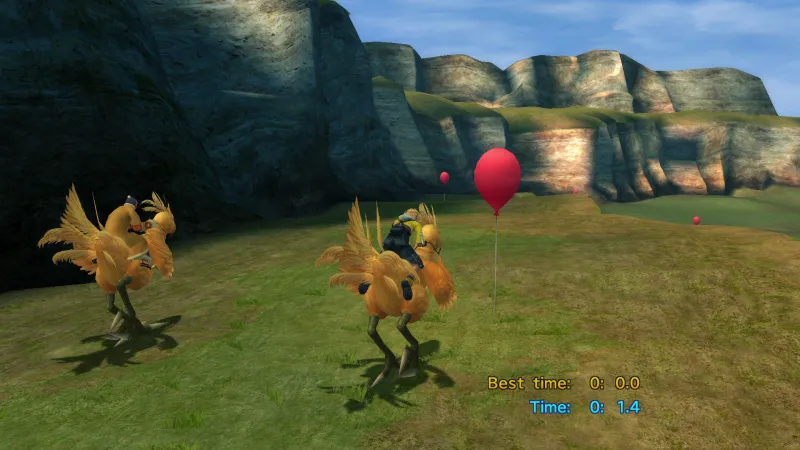
Final Fantasy X is one of my favorite games of all time. I love the combat, the story, and even some of the strange hoops you have to jump through in order to obtain the best weapons and summons in the game. I’m currently replaying Final Fantasy X (I think my seventh or eighth playthrough), and as I gear up to launch my final assault on Sin, I’m once again reminded of how downright awful some of the optional quests you have to complete are if you want to max out your characters.
Sure, playing so much blitzball that I hear the theme song in my sleep or collecting monsters in a multitude of different areas isn’t what I consider an amazing time, but they’re fine for optional quests. It’s when I decide to pursue the Celestial Weapons of Lulu and Tidus that I really start to question my enduring love for this game. Dodging 200 lightning bolts is incredibly tedious and often frustrating, but the Chocobo racing minigame, where you need to avoid the most aggressive birds in gaming history while collecting balloons and racing to the finish line, is downright infuriating.
I love Chocobo Racing. pic.twitter.com/rpK0vwzXQw
— Brian Shea (@BrianPShea) May 6, 2021
While I beat the original game twice on PS2, I’ve since migrated to playing the remastered version on Vita, then PS4, and now, PlayStation 5. The hardware, graphics, and even the music have changed in this newer version, but the experience of raging at the game as I work to get Tidus’ Caladbolg remains just as awful as ever. The sequence got me thinking about what role remasters should play when it comes to beloved games that are universally hated.
Remasters and remakes are not the same thing. For instance, look no further than the difference between what Final Fantasy X/X-2 Remastered does versus what Final Fantasy VII Remake accomplishes. In games like Final Fantasy VII Remake and the recent Resident Evil remakes, the developers were able to retell classic stories and recreate iconic moments in completely new and modern ways. I don’t think remasters should be compared to that standard, but how far can or should they go to improve the experience of classic games to make them more playable in modern times?

Even the barebones Super Mario 3D All-Stars collection modernized the controls of Super Mario Sunshine
While remakes certainly have more liberty in this realm, it’s not unprecedented that a developer addresses bad parts of games in remasters. For the upcoming Mass Effect Legendary Edition (which is a remaster), EA and BioWare made various improvements to the original Mass Effect, including smoothing over gameplay and tuning up the oft-maligned MAKO. Of course, remasters can fit a broad definition, ranging from up-rezzed graphics and performance improvements, as is seen in Hitman HD Enhanced Collection, to complete visual overhauls like in Shadow of the Colossus for PS4.
How far should remasters go when addressing a bad part of a classic game? Which part of a classic game would you like to see improved in a remaster? Or do you think remasters should maintain the original experience, warts and all when they carry these experiences forward? Sound off in the comments section below!
Source: Game Informer Should Remasters Fix Bad Parts Of Games?

